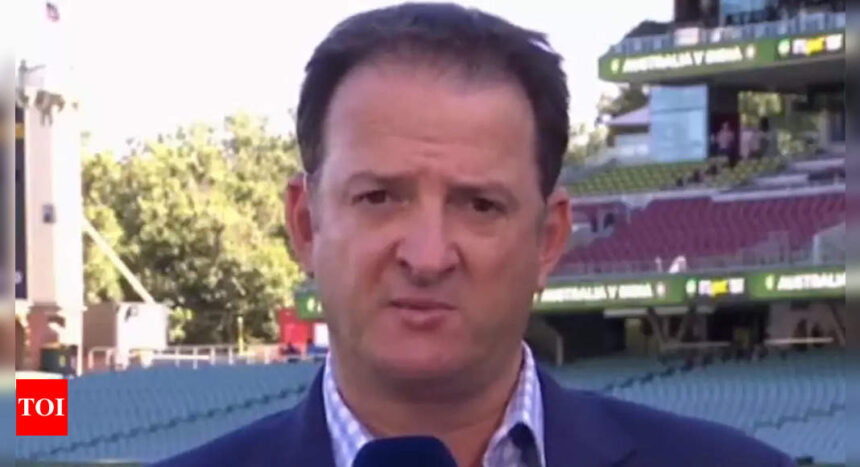[ad_1]

NEW DELHI: Former Australian captain Mark Waugh has voiced concerns about the future of ODI cricket, suggesting it may only survive in the context of major tournaments like the World Cup and ICC events.
According to the former Australian cricketer, the one-day format is losing its appeal and relevance outside of these marquee events, as T20 cricket and Test matches increasingly dominate fans’ interests.
Waugh’s comments reflect a growing sentiment within the cricket community that ODI matches, once a staple of international schedules, may eventually phase out as fans and players gravitate towards the shorter, more dynamic T20 format and the traditional prestige of Test cricket.
Following Australia’s 1-2 ODI series defeat to Pakistan with a depleted squad, Waugh expressed his concerns. The Australian team, without key Test players including Pat Cummins, Steve Smith, Marnus Labuschagne, Mitchell Starc, and Josh Hazlewood, displayed notable weaknesses.
Despite Cummins leading Australia to victory in the opening ODI, his subsequent absence, alongside other Test specialists, exposed an inexperienced team.
The World Cup champions suffered consecutive heavy defeats, with disappointing batting performances resulting in scores of just 163 and 140 in the second and third ODIs.
This marked Australia’s first ODI home series loss to Pakistan since 2002, prompting cricket analysts Ian Healy and Michael Clarke to suggest that Cricket Australia‘s commitment to non-significant bilateral series might be waning.
“I think you’re spot on. The World Cup and the Champions Trophies are still great events. The last World Cup in India was an amazing tournament, not just because Australia won. I still think it’s a fantastic tournament and it’s a great format because it combines a bit of T20 and Test match cricket in the 50-over game. You don’t want to lose the 50-over game completely,” Waugh, who scored 18 international centuries and stands as one of Australia’s finest ODI cricketers, told news.com.au.
In light of the increasingly crowded cricket schedule, particularly due to the worldwide expansion of T20 leagues and competitions, Waugh suggests that bilateral ODI series could be losing their significance and relevance in modern cricket.
“But given the scheduling of all these T20 tournaments around now and with scheduling, it’s squeezing out 50-over bilateral series. Obviously it’s a great thing to play for your country, you don’t want to disrespect that. But by the same token, you want to be playing for something that’s a bit more than just a three-game series thrown in the middle of all these other tournaments and series. I think it will get phased out. I think that’s probably the way to go,” he said.
The ODI cricket format’s destiny appears to be linked to prestigious tournaments such as the ICC World Cup and Champions Trophy. According to Waugh’s perspective, while bilateral ODIs could function as preparation for major competitions, these standalone fixtures might struggle to maintain relevance during the intervening periods.
“When you get towards these big tournaments like a World Cup, then you might introduce some more games as lead-ups,” he added.
“But…the three-match series – great for Pakistan obviously to win…but I don’t think it’s going to be the highlight of the cricket season,” Waugh concluded.
[ad_2]
Source link







